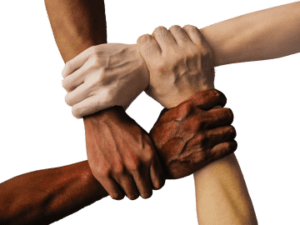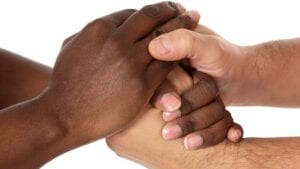As we emerge from the Covid-19 pandemic, a new epidemic is infecting us: racism. Can we get out of this situation without deaths? Without accusing politicians or rejecting the press? Will we be able to avoid a descent into the underworld of bruised memory?
I, like you, have seen since May 25 the terrible image of a black man on the ground, in Minneapolis (United States), asking to breathe, dying under the knees of a policeman who was aware that he was killing that man. I am horrified and disgusted by what happened to Mr. George Floyd. However, he is just one of the many people of color who has suffered discrimination.
 A few days earlier, on May 13, a young black nurse from Louisville was mistakenly killed in her apartment. All this brings to light countless unjustifiable acts against blacks in a multi-ethnic country.
A few days earlier, on May 13, a young black nurse from Louisville was mistakenly killed in her apartment. All this brings to light countless unjustifiable acts against blacks in a multi-ethnic country.
It does not make me hate the police, but it does make me set my sights on justice, which will have to condemn the unjustifiable practices of those responsible for protecting order in our societies. The police officer responsible for the death of Mr. Floyd, initially charged with homicide, will see the complaint reclassified as murder in the next few days. That seems fairer. But let’s not forget that on June 5, in Buffalo, a 75-year-old Christian peace activist, unbalanced by a police officer, could die as the result of his fall. Yet the next day, an irresponsible and derogatory twitter of the President of the States United identified the activist with “antifa,” and thus justified the actions of the police officers. So what is at stake is the ethics of our security services. It should be noted that, in the days following the death of Mr. Floyd, the Minneapolis Municipal Police was dissolved in an attempt to regenerate and create a healthier and safer police force at the service of the citizens of Minneapolis. Let’s not forget to celebrate this news either!
As we know, the United States has a long and painful history of race relations, a long history of slavery before achieving healthy coexistence. Society in the United States believed that it had gained respect and dignity after Pastor Martin Luther King’s long civic march. What a strange nation capable of writing its history by choosing its first black president and electing as his successor a populist who stirred the tensions of a stressed society.
I remember the misadventure of a black wildlife photographer, who while walking his dog in New York City on May 26, asked a white woman to put a leash on her dog, so that he could take a picture of a bird. The lady called the police for help, alleging an attack. The police, before anything else, pinned the photographer to the ground, before apologizing. Sad attitude of this white New Yorker who, in fact, took advantage her “white privilege”
All of these cases bring with them painful memories of recent history, such as those in the shocking movie “Twelve Years of Slavery: The Life of a Black Man in the 1840s.” Free in the northern part of his homeland, he is kidnapped by southern settlers, who employ him as a slave on cotton plantations for 12 years. Let’s not forget our history, but let’s write our present history without hatred. Let’s write a story about reconciliation and resiliency.
In recent days, in many places on various continents, we have seen statues of kings, emperors, and navigators knocked down and thrown into the sea. If we continue throwing our images into the dustbin of history, we will return to the period of iconoclastic battles of the 9th century. That time when the emperors of the West and the East, interpreted the disasters of their nations from the perspective of their people worshiping images and thus, those images had to disappear. It was then that more than a hundred years of incessant battles began between those who defended the right to venerate the creator, respecting the images as a mediation between the sacred and the created world, and those who called these persons idolaters.
Christopher Columbus (the Venetian of Portugal thrown into the water in Boston), Leopold II (king of the Belgians, in Brussels, defaced … but where are we going to stop? Didn’t Caesar colonize much of Europe? Didn’t Napoleon go to Africa after trying to enter Italy and Spain? Didn’t the Japanese emperor, Shōwa enslave many Asians during the expansionist era? Didn’t Turkish Sultan Mehmet II establish a large market for white slaves in Constantinople?
Let us not forget that, although our ancestors were not model leaders. All those who began by removing the traces of the past have always been linked to nationalist currents. Currents that led to dictatorships. Let’s know learn to preserve their memory, even if it is controversial. Let us learn from their experiences, their writings … let us learn from them so as not to repeat their mistakes. If we continue this destructive madness of destroying our memory of the past, we run the risk of losing our identity and entering into incessant conflicts that will lead us to totalitarian regimes and destruction.
Let us not forget that the history of the world has been built, on many occasions, when a series of civilizations have subjugated others. Scandinavians who expanded their conquests to the southern lands enslaved the Russians for many years [1]; the Turks and Berbers kept the whites enslaved [2] (the women for their harems and the men as labor and for their armies); whites used blacks as a workforce (to produce sugar and cotton)[3]. a sad memory, yes, but let’s preserve it to read and learn from these mechanisms that were a shameful source of wealth. Let us be careful not to reproduce such injustices.
 Let us be disciples of Jesus, who lived in a land colonized by the Romans, in a town divided between the Pharisees, pure people who did not want any mixture, and the Sadducees, authorities who were acculturated, the Syro-Phoenicians, neighboring people who were fighting for the borders, and the Samaritans, a tribe divided by an inflexible religious history. At the heart of these tensions, Jesus knew how to offer words of communion.
Let us be disciples of Jesus, who lived in a land colonized by the Romans, in a town divided between the Pharisees, pure people who did not want any mixture, and the Sadducees, authorities who were acculturated, the Syro-Phoenicians, neighboring people who were fighting for the borders, and the Samaritans, a tribe divided by an inflexible religious history. At the heart of these tensions, Jesus knew how to offer words of communion.
He reminded the Sadducees and Pharisees that, instead of fighting over the laws that must be applied, they should rediscover their love for God and neighbor, their sense of respect for the transcendent and service to others, as the Ten Commandments remind us.
To a Syro-Phoenician woman who asked for help for her daughter, he granted her healing so that her life might continue. He reminded the Samaritan woman who went to draw water that true religion, before being a matter of traditional identity, is a thirst for communion with him Totally-Other who is close to each and every person.
Jesus did not hesitate for a second to restore the health of the invading soldier’s servant – taking advantage of this request to remind the soldier to continue his “policing” mission without becoming inhuman.
Let us be one of those persons capable of writing a new history of peace, one that tells future generations about the adventures of their ancestors as they opened new paths to a common life on our little planet.
Yesterday, when I entered one of the shelters in the city where I live, after being asked to meet with the management, I approached a young African couple who were listening to songs on their phone. I awkwardly asked the man where he was from. He told me that, although we are not all of the same color, we are all from this Earth and that we all have the right to live with dignity on this planet and that borders were invented by man. I apologized and explained that I had worked for a long time with Senegalese, Cameroonian, Malagasy and that each one was truly different, a miracle of this earth, and that my wish was not to harm them. I asked them to forgive me for for my clumsiness. When I left to go to my appointment I apologized again for my question, which had hurt them. I told them again that there was no racist intention on my part, but that a few days ago I was talking about whatsapp with a young Congolese friend, who was hospitalized in Kinshasa after being hit by a vehicle. Then they told me how sad they were because they had been living in the shelter for 4 years and they yearned to be able to live a normal life.
Before being black, white, yellow or red, each life, each human being, has two eyes, two ears, two arms, two legs exposed to everyone’s gaze, a brain and a heart that are invisible, but produce life. The brain is what animates all thoughts, and the heart is the seat of emotions that lead us to others. Let us be those tireless artisans of justice who ensure that every uncivil act is justly sanctioned. But above all, let us work together to build true bonds of solidarity, bonds worthy of our humanity and a sign that reveals the beauty of creation.
As we read in the Statement of the Office of the Vincentian Family in the United States: In 1649, Vincent de Paul wrote: the poor are my concern and my sorrow. Today in 2020, we, the members of the Vincentian Family in the United States of America firmly state: the lives of men and women of color matter; they are our concern and our sorrow.
Bernard Massarini, C.M., June 13, 2020.
[1] Gruzinski, Les quatre parties du monde, Ed La Martinière, Paris, 2014.
[2] R.C Davis Esclaves chrétiens maitres musulman, Ed Jacqueline Chambis, Cahors, 2006 ; N’Daye, Le génocide voilé, Folio, Paris 2017.
[3] Olivier Pétré-Grenouilleau, La Traite des noirs, Poche, Ed. PUF, 1998.







0 Comments